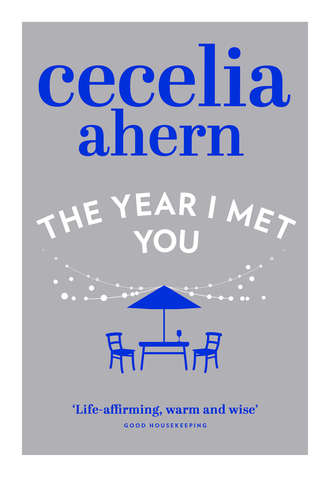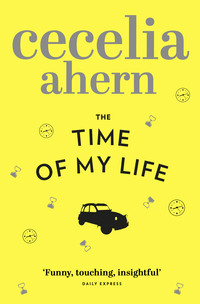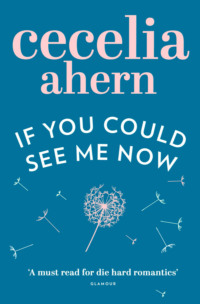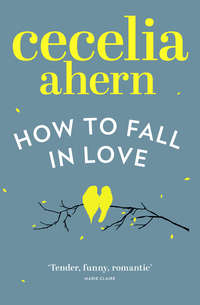
Полная версия
The Year I Met You
The bark of the dog across the road is barely audible above the wind, I think Dr Jameson has forgotten to take him in again. He’s getting a bit scatty, or else he’s had a falling out with the dog. I don’t know its name but it’s a Jack Russell. I find it running around my garden, sometimes it shits, it has on a few occasions run into my house and I’ve had to chase it around and deliver it back across the road to the right honourable gentleman. I call him the right honourable gentleman because he is a rather grand man in his seventies, retired GP, and for kicks and giggles was the president of every club going: chess, bridge, golf, cricket, and now our neighbourhood management company, which handles leaf-blowing, street-lamp bulb replacement, neighbourhood watch and the like. He is always well turned out, perfectly ironed trousers and shirts with little V-neck sweaters, polished shoes and tidy hair. He talks at me as if he’s directing his sentences over my head, lifted chin and head-on nostrils, like an amateur theatre actor, yet is never blatantly rude so gives me no reason to be rude back, but just distant. Distance is all I can give someone I can’t truly fathom. I didn’t know until one month ago that Dr Jameson even had a dog, but these days I seem to know too much about my neighbours. The more the dog barks over the wind, the more I worry if Dr Jameson has fallen over, or been blown away into somebody’s back garden like the trampolines that have been garden-hopping during the storms. I heard about a little girl waking up to find a swing set and slide in her back garden; she thought Santa had come again, but it turned out it had come from five houses down the road.
I can’t hear the party down the street, though I can see it. Mr and Mrs Murphy are having their usual family New Year shindig. It always begins and ends with traditional Irish songs and Mr Murphy plays the bodhrán and Mrs Murphy sings with such sadness it’s as though she’s sitting right in a field of dead rotten black potatoes. The rest of their guests join in as though they’re all rocking from side to side on a famine ship on stormy seas to the Americas. I’m not sad that the wind is lifting their sounds away in another direction, I can however hear a party that I can’t see, probably from a few streets away; a few words from those crazy enough to smoke outside are blown down my chimney, along with a distant rhythm of party music before it gets swiped away again; sounds and leaves circling in a violent frenzy on my doorstep.
I was invited to three parties, but couldn’t think of anything worse than party-hopping from one to the other, finding taxis on New Year’s Eve in this weather, feeling like this. Also the TV shows are supposed to be great on New Year’s Eve and, for the first time ever, I want to watch them. I wrap the cashmere blanket tighter around my body, take a sip of my red wine, feeling content with my decision to be alone, thinking that anybody out there, in that, is crazy. The wind roars again and I reach for the remote control to turn the volume up, but as soon as I do, every light in my house, including the television, goes off. I’m plunged into darkness and the house alarm beeps angrily.
A quick look outside my window shows me the entire street has lost electricity too. Unlike the others, I don’t bother with candles. It is further reason for me to feel my way to the stairs and climb into bed at barely ten o’clock. The irony that I am powerless is not lost on me. I watch the New Year’s Eve show on my iPad until the battery dies, then I listen to my iPod, which displays a threateningly low red battery that diminishes so quickly I can barely enjoy the songs. I turn then to my laptop, and when that dies I feel like crying.
I hear a car on the road and I know it’s action time.
I climb out of bed and pull open the curtains. The lights are out on the entire street, I see the flicker of candles from a few houses but mostly it is black, most of my neighbours are over seventy and are in bed. I’m confident that I can’t be seen because my house, too, is black; I can stand at the window with the curtains open and freely watch the spectacle that I know is about to take place.
I look outside. And I see you.
3
I am not a stalker but you make it difficult for me not to watch you. You are a circus act all of your own and I cannot help but be your audience. We live directly across the road from one another on this suburban cul de sac in Sutton, North Dublin, which was built in the seventies and was modelled on an American suburb. We have large front gardens, no hedging or shrubs to separate the pathway from our gardens, no gates, nothing to stop a person from walking straight up to our front windows. Our front gardens are larger than our back gardens and so the entire street has taken pride in maintaining the front, each one pruned, groomed, fed and watered within an inch of its natural life. Everybody on our street, bar the occupants of your house and mine, is retired. They spend endless hours in their gardens and, because they are outside, in the front, everybody knows about who comes and goes and at what time. Not me though. Or you. We are not gardeners and we are not retired. You are probably ten years older than me but we have lowered the age of the street by thirty years. You have three children, I’m not sure what ages they are but I guess one is a teenager and the other two are under ten.
You are not a good father; I never see you with them.
You have always lived opposite me, ever since I moved in, and you have always bothered me beyond belief, but going to work every day and all that came with that for me – distraction and knowing that there are more important things in the world – took me away from caring, from complaining and marching over there and punching your lights out.
I feel now like I’m living in a goldfish bowl and all I can see and hear from every window in my home is you. You, you, you. So at two thirty in the morning, which is a rather respectable time for you to return home, I find myself, elbows on the windowsill, chin resting on my hand, awaiting your next screw-up. I know this will be a good one because it’s New Year’s Eve and you are Matt Marshall, DJ on Ireland’s biggest radio station and, despite not wanting to, I heard your show tonight on my phone before that too died. It was as intrusive, disgusting, repulsive, unpalatable, foul, nasty and vomitous as the others have been. Your talk show Matt Marshall’s Mouthpiece which airs from eleven p.m. to one a.m. receives the highest number of listeners of any show on Irish radio. You have been at the helm of late-night talk shows for ten years. I didn’t know you lived on this street when I moved in, but when I heard your voice travel to me across the road one day, I knew instantly it was you. Everybody does when they hear you, and mostly they get excited but I was repulsed.
You are everything I do not like about people. Your views, your opinions, your discussions that do nothing to fix the problem you pretend you want to fix and instead stir up angry frenzies and mob-like behaviour. You provide a hub for hatred and racism and anger to be vented, but you present it as free speech. For those reasons I dislike you; for personal reasons, I despise you. I’ll go into them later.
You have driven home, as usual, going sixty kilometres per hour down our quiet retirement-home-like street. You bought your home from an aged couple who were downsizing, I bought mine from a widow who’d died – or at least from her children, cashing in. I did well, buying when houses were at their lowest, when people were taking what they could, before anything had risen again, and I am aiming to be mortgage free, an ambition I’ve had since I was five, wanting everything that’s mine to actually be mine and not at the mercy of others and their mistakes. Both of our homes looked like an episode of The Good Life and both of us had extensive work to do and had to fight with the management company who accused us of ruining the look of the place. We managed to compromise. Our houses look like The Good Life from the front; inside, we have extensively renovated. I, however, broke a rule with my front garden that I am still paying for. More on that later.
You drive dangerously close to your garage door as usual and you climb out of the car, leaving the keys in the ignition, the radio blaring and the engine running. I’m not sure if you have forgotten or if you are not planning on staying. The car lights are on and are the only light on the street; it adds to the drama, almost as if the spotlight is on you. Despite the wind, which has died somewhat, every word of the Guns N’ Roses song is audible from the car. It’s ‘Paradise City’; 1988 must have been a good year for you. I was eight years old, you would have been eighteen, I bet you wore their T-shirts and had them on your school bag, I bet you engraved their names into school journals and went to The Grove and smoked and danced all night and shouted every word of their songs to the night sky. You must have felt free and happy then, because you play it a lot and always when you’re driving home.
I see a light go on in Dr Jameson’s bedroom; it must be a torch because it is moving around, as though the person holding it is disorientated. The dog is barking like mad now and I wonder if he’ll let him in before some little girl wakes up in the morning to find Santa has left a dizzy Jack Russell in her back garden. I watch the torch moving around the rooms upstairs. Dr Jameson likes to be at the helm of things, apparently. I learned this from my next-door neighbour Mr Malone, who called to my door to let me know that the bin truck was coming and he’d noticed I’d forgotten to put out my bins. I sense Mr Malone and Dr Jameson are at loggerheads over who should be in charge of the management company. I had forgotten to put my bins out because not being at work means I often confuse my days, but him calling to my home to tell me annoyed me. Seven weeks on, it wouldn’t bother me. I find it helpful. Everything neighbourly and anything helpful bothered me then. I had no community spirit. It wasn’t because I turned my back on it, it was because I was too busy. I didn’t know it existed and I didn’t require it.
You try the handle of the front door and appear full of shock and dismay that it isn’t unlocked for you or some masked gunman to freely enter your home. You ring the doorbell. It never begins politely, it is always rude, offensive. The amount of times you ring, the length of time you ring it for, like the burst of a machine gun. Your wife never answers straight away. Neither do the children; I wonder if they sleep through it now because they’re so used to it, or if she’s in there with them, all huddled in one room while the children sob, telling them to ignore the scary sounds at the door. Either way, nobody comes. Then you bang on the door. You like the banging, you spend most nights doing this, relieving your tension and anger. You work your way around the entire house, knocking and banging on every window you can reach. You taunt your wife in a sing-song voice, ‘I know you’re in there,’ as if she is pretending that she isn’t. I don’t think she is pretending, I think she is making it quite clear. I wonder if she is asleep or wide awake and hoping you will go away. I guess the latter.
Then you pick up your yelling. I know she hates the yelling because that above all embarrasses her, perhaps because your voice is so distinctive – though we couldn’t ever think it was any other couple on the road behaving like this. I don’t know why you haven’t figured this out by now and just cut straight to the yelling. She remains resolute for the first time I’ve witnessed. You do a new thing. You go back to your car and start blowing the horn.
I see Dr Jameson’s torch moving from upstairs to a downstairs room and I hope he isn’t going to go outside to try to calm you down. You will no doubt do something drastic. Dr Jameson’s front door opens and I hold my hands to my face, wondering if I should run out and stop him, but I don’t want to get involved. I will watch and when it turns violent I will step in, though I have no idea what I will do. Dr Jameson doesn’t appear. The dog comes running around the house at top speed, almost falls over himself on the flooded soggy grass in the race to get inside. The dog runs inside and the door is slammed. I laugh in surprise.
You must hear the door slam and think that it’s your wife, because you stop honking the horn and Guns N’ Roses is all that can be heard again. I’m thankful for that. The honking was above all the most annoying thing you’ve done. Almost as if she was waiting for you to calm down before letting you in, the front door opens and your wife steps out in her dressing gown, looking frantic. I see the dark shadow of someone behind her. At first I think she has met somebody else and I seriously worry about what will happen, but then I realise it’s your eldest son. He looks older, protective, the man of the house. She tells him to stay inside and he does. I am glad. You don’t need to make this any worse than it already is. As soon as you see her you jump out of the car and start shouting at her for locking you out of the house. You always shout this at her. She tries to calm you as she makes her way to your still-open jeep door, then she takes the keys out, which kills the music, the engine and the lights. She shakes the keys in front of you, telling you that you have the house key on your set. She told you that. You knew that.
But I know, as does she, that your practicality belongs with your sobriety, and in its place is this desperate, wild man. You always believe that you’re locked out, that you have been deliberately locked out. That it is you against the world, or more that it is you against the house, and that you must get inside using any means necessary.
You go quiet for a moment as you take in the keys dangling in front of your face and then you stagger as you reach for her, pull her close and smother her with hugs and kisses. I can’t see your face, but I see hers. It is the picture of complication, inner silent torture. You laugh and ruffle your son’s head as you pass, as if the whole thing was a joke, and I detest you even more because you can’t say sorry. You never say sorry – not that I’ve witnessed, anyway. Just as you step into the house the electricity goes back on. You twist around and you see me, at the window, my bedroom lights on full, revealing me in all my sneaky glory.
You glare at me, then you bang the door closed, and with all that you’ve done tonight, you make me feel like the weird one.
4
One of the things I liked about the Christmas break just gone was that nobody was working, it put us all on the same level. Everyone was in holiday mode, I didn’t have to compare and contrast me from them, them from me. But now everybody is back at work, so I am back to feeling how I felt before the break.
Initially I felt shocked, my whole system felt shocked, and then I believe I went through a grieving process as I mourned for a life that I’d lost. I was angry, of course I was angry; I had considered Larry, my colleague, my firer, to be my friend. We went skiing together every New Year, I stayed in his Marbella holiday home with him and his family for a week every June. I was one of the few invited to the house for his daughter’s over-the-top debs gathering. I was one of the small inner circle. I had never considered that he could take this course of action; that, despite the often heated arguments, our relationship would come to this, that he would very simply have the balls to do this to me.
After the anger, I was in denial about it being a bad thing that had happened. I didn’t want losing my job to own me, to define me. I didn’t need my job, my job needed me – and too bad, it had lost me. And then Christmas came and I got lost in social events; dinners and parties and drunken festivities that made me feel warm and fuzzy and forgetful. Now it is January and I feel as bleak as the day outside, for I am overcome by a new feeling.
I feel worthless, as though a very important part of my self-esteem has been utterly diminished. I have been robbed of my routine, my schedule which once determined my every single waking and sleeping hour. Routine of any kind has been difficult to establish; there don’t seem to be any rules for me, while everybody else marches to the beat of their own important drum. I constantly feel hungry, metaphorically and literally. I am hungry for something to do, somewhere to go, but I’m also hungry for everything in my kitchen because it’s there, right beside me, every day and I have nothing better to do than eat it. I am bored. And as much as it pains me to say it, I am lonely. I can go an entire day without any socialisation, without a conversation with anyone. I wonder sometimes if I’m invisible. I feel like the old men and women who used to bother me by engaging in unnecessary chit-chat with the cashiers while I was stuck behind them, in a hurry, wanting to get on to the next place. When you don’t have a next place to go to, time slows down enormously. I feel myself noticing other people more, catching more eyes, or seeking out eye contact. I’m now ripe and ready for a conversation about anything with anyone; it would make my day if somebody would meet my eye, or if there was someone to talk to. But everyone is too busy, and that makes me feel invisible; and invisibility, contrary to what I believed before, lacks any sense of lightness and liberty. Instead it makes me feel heavy. And so I drag myself around, trying to convince myself that I don’t feel heavy, invisible, bored and worthless, and that I am free. I do not convince myself well.
Another of the bad things about being fired is that my father calls by, uninvited.
He is in the front garden with my half-sister Zara when I arrive home. Zara is three years old, my dad is sixty-three. He retired from his printing business three years ago after selling it for a very good price that allows him to live comfortably. As soon as Zara was born he became a hands-on husband and father while his new wife, Leilah, works as a yoga instructor in her own practice. It is lovely that Dad has had a second chance at love, and also lovely that he has been able to fully embrace fatherhood, properly, for the first time in his life. He fully embraced the nappy-changing, night feeds, weaning and anything else that raising a child threw at him. He glows every day with the pride he has for her, this remarkable little girl who has managed to do such incredible things all by herself. Grow, walk, talk. He marvels at her genius, tells long stories about what she has done that day, the funny things she has said, the clever picture she drew for one so young. As I said, it is lovely. Lovely. But he views it with a first-time joy, a beginner, someone who has never seen it happen before.
In the last few weeks it has made me think, because I’ve had time to, and I wonder where was his wonderment, his absolute shock and awe, when Heather and I were growing up? If it was ever there at all, it was hidden by the mask of inconvenience and complete bafflement. Sometimes when he points out something wonderful that Zara has done I want to scream at him that other children do that too, you know, children like Heather and I, and how incredible we must have been to have gotten there first over thirty years ago. But I don’t. That would make me bitter and twisted, and I am not, and it would create an energy around something where there is nothing. I tell myself it’s the idleness that leads to these frustrating thoughts.
I often wonder, if Mum was alive, how would she feel seeing Dad as the man he is now – loyal, retired, a dedicated father and husband. Sometimes I hear her on her forgiving, wise days being all philosophical and understanding about it and other days I hear the tired voice of an exhausted single mother that I grew up with, spitting venom over him and his insensitivities. Which of her voices I hear may depend on what mood I am in myself. Mum died from breast cancer when she was forty-four. Too young to die. I was nineteen. Too young to lose a mother. It was most difficult for her, of course, having to leave this world when she didn’t want to. She had things she wanted to see, things she wanted to do, things she had been putting off until I was finished school, an adult, so that she could begin her life. She wasn’t finished yet; in many ways, she hadn’t even started. She’d had her first baby at twenty-four, then me the accident at twenty-five, and she had raised her babies and done absolutely everything for us and it should have been time for her.
After she died, I lived on campus and Heather stayed in the care home she had moved into while Mum was undergoing treatment. Sometimes I wonder why I was so selfish and didn’t decide to care for Heather myself. I don’t think I even offered. I understand that it was necessary for me to begin my own life, but I don’t believe I even thought about it for a moment. It’s not selfish not to want to, but it was selfish not to think about it. I look back and realise I could have been more helpful to my mother at the time too. I feel like I let her go through it all alone. I could have been there more, accompanied her more, instead of asking her about things afterwards. But I was a teenager, my world was about me then, and I saw my aunt being there for my mum.
Heather is my Irish twin: older by one year. She treats me as though I am the baby sister by many more years. I love her for this. I know that I was an accident, because my mum had no intention of planning another child so soon after the birth of Heather. Mum was shocked, Dad was appalled; he could barely cope with a baby in the first place, let alone one with Down syndrome, and now there was a second child on the way. Heather scared him; he didn’t know how to deal with her. When I came along, he moved further away from the family, seeking out other women who had more time on their hands to adore him and agree with him.
Meanwhile my mum dealt with reality with such strength and assurance, though she would admit later that she did it with what she called ‘Bambi legs’. I never saw that in her, never saw a shake or tremble or wrong-step, she always made it seem as if she had it all under control. She joked, and apologised, that I raised myself. I always knew that Heather was more important, that Heather needed more attention; I never felt unloved, it was just the way it was. I loved Heather too, but I know that, when Mum left this world, the one person she did not want to leave behind was Heather. Heather needed Mum, Mum had plans for Heather, and so she left the world with a broken heart for the daughter she was leaving behind. I’m okay with that, I understand. My heart broke not just for me but for the two of them too.
Heather is not happy-go-lucky, as people with Down syndrome are stereotypically thought to be. She is an individual who has good days and bad, like us all, but her personality – which has nothing to do with Down syndrome – is upbeat. Her life is tied up in routine, she appreciates it as a way of feeling in control of her life, which is why when I show up at her home or when she’s at work, she gets confused and almost agitated. Heather needs routine, which is something that makes us even more similar and not at all different.
Zara is hopping from one cobblestone to the other and trying not to step on the cracks. She insists Dad does the same. He does. I know this about him now and yet, seeing him, his Christmas belly hanging over his trousers and bouncing up and down as he hops from stone to stone, I still can’t help but not know who this man is. He looks up as I pull in.
‘I didn’t know you’d be here,’ I say, lightly. Translation: You didn’t tell me, you must always tell me.
‘We were taking a drive along the coast, watching the waves – weren’t we, Zara?’ He scoops her up in his arms. ‘Tell Jasmine about the waves.’
He always gets Zara to say things for us; I’m sure most parents do, but it infuriates me. I would rather have a conversation with Zara that isn’t dictated by Dad. Hearing her tell me things is hearing it twice.
‘They were huge waves, weren’t they? Tell Jasmine how huge they were.’









